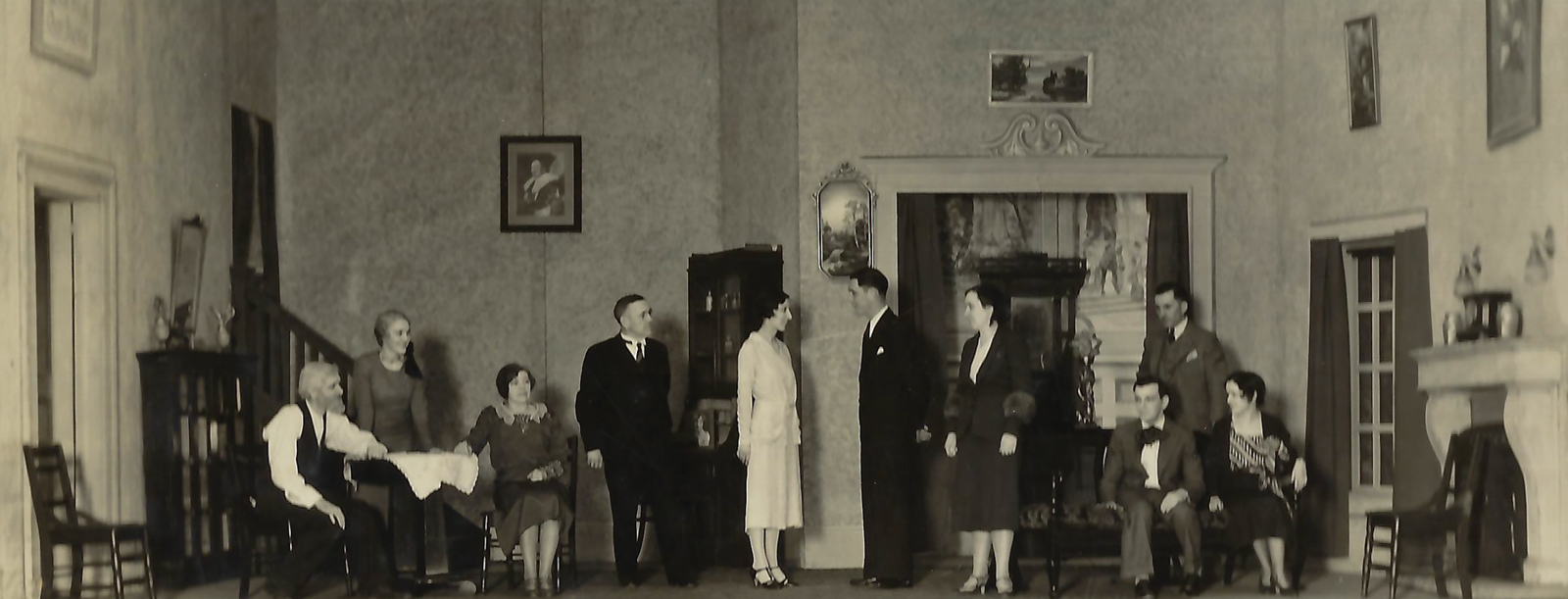The Skelly Players
The Skelly Players
As founder of the Central Association of the Miraculous Medal, the name Fr. Joseph A. Skelly, CM, is synonymous with The Miraculous Medal Shrine and the worldwide promulgation of Mary’s Miraculous Medal in the 20th century.
But Fr. Skelly was not the only famous member of his family. James Skelly, Fr. Skelly’s older brother, had his own legacy, which made a different, yet substantial, impact on Philadelphia. As noted in The Book of the Enterprise by Donald O’Connell (1927), James was a member of the Enterprise Players, a Catholic dramatic club in Germantown. It was established on April 19, 1871, with the mission of founding and supporting a literary society.
Literary societies were flourishing in America during this period because literature started becoming a field of academic study, and technology made the production of books cheaper and more accessible. Added to this, the “Little Theatre” movement arose at roughly the same time. This movement counterbalanced large, commercial theaters by creating small, community playhouses. These elements were converging in the era of the Enterprise Players.
The Vincentians aligned with the group and in 1885, the association found a physical home in St. Vincent’s Hall at St. Vincent de Paul’s Parish. Here they housed the literary guild and society, which included the theatrical company.
In 1897, the Enterprise adapted a new constitution and changed its name to the Catholic Young Men’s Association of Germantown, which is the oldest dramatic association in Philadelphia. New features of the society included literary, moral, social, athletic, and educational programs. In 1917, James joined the society and assumed the official responsibility as spiritual director of the club, a position originally held by whoever was serving as the pastor of St. Vincent’s parish. He became the first lay person to serve and is noted as being the longest tenured director to ever hold the title.
Additionally, James acted and produced many of the dramatic productions, having been a member of Philadelphia’s Philopatrian Club (current-day Philopatrian Literary Institute), where he produced amateur shows, which provided financial support for charitable institutions of the Archdiocese of Philadelphia.
Honor Walsh of the Catholic Standard & Times noted, “[The Enterprise] was the ideal Catholic dramatic society. Fortunate in the gifts and talent of its members, it remains to this day a model of its kind. Its performances were as artistic as human power could make them.”
While the club was originally limited exclusively to men, women were “drafted” from the Parish Reading Circle, a literary club for girls, to play female roles. On several occasions, the club was augmented by professional actresses, elocution teachers, and aspiring young thespians from different sections of Philadelphia.
The actors were affectionately dubbed the Skelly Players in honor of their leader, James.
Special thanks to Margie Noone, whose father was a member of the Skelly Players, for the information, photos, and documentation.


